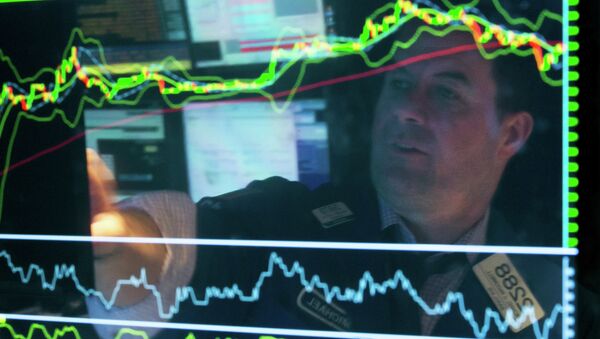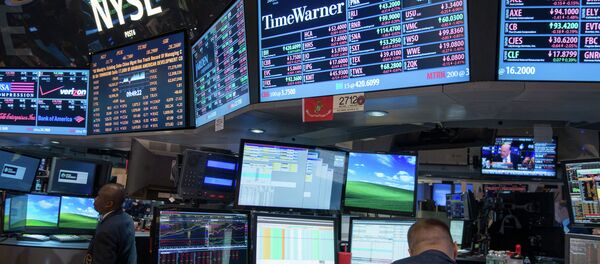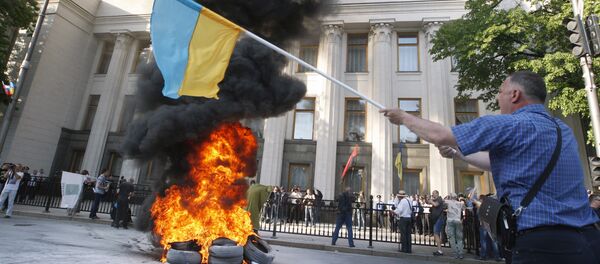Kristian Rouz – As the European investors and traders have nearly lost their confidence in Greece’s ability to reach a deal with its creditors in order to overcome the financial crisis, a solid performance of the anti-austerity political forces in Spain's elections this past weekend has put an even greater downward pressure on the markets.
The Stoxx Europe 600 slid 0.4%, however, in futures trading after Tuesdays close the index rebounded 0.16%. European energy shares were hit on Tuesday as a stronger dollar weighed on oil price.
In Greece, the interior minister said the nation does not have enough funds to finance its loan payment due in June, sending a shockwave across European markets. A political conflict is also brewing in the heavily-indebted nation as prime-minister Alexis Tsipras is facing harsh resistance from his left-wing Syriza party as the latter is generally opposed to the austerity policies Greece has to agree in order to receive bailout money from the international creditors, including the IMF.
Despite the concerns, Greece’s main index, ASE, added 1.39%.
In Spain, a coalition of the left-wing Podemos party and the centrist Cuidadanos party won the regional and municipal elections this past Sunday. Both parties are known as hardline opponents of the austerity measures advocated by Brussels.
In Frankfurt, the DAX Index was 0.68% down, while in Paris, the CAC 40 Index rose 0.38%. In London, the FTSE 100 Index slid 0.13%.
Spanish, Portuguese and Greek governmental debt was on sale on Tuesday, as these nations’ ability to pay was put into question. Fixed-income market was hit by a sell-off in Swiss 10-year bonds, traditionally attractive for investors.
Periphery debt concerns and a decline in bond markets triggered a sell-off in the common currency, which dropped below $1.09. A weaker euro is a blessing for the German industries, as well as the European inflation and the overall growth prospects.



